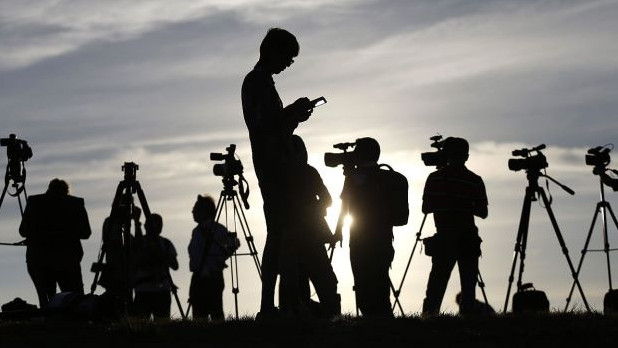Media personnel in Sri Lanka have been facing numerous constraints from Law Enforcement authorities in two distinct ways — criminal defamation and contempt of Court. Reference to media is not confined to print and electronic. As a result of the reforms suggested in the Colombo Declaration 1998 with a view to achieve a free and independent media, Sri Lanka was emancipated from criminal defamation more than a decade ago in 2002.
In contrast, however, Contempt of Court has been accepted by courts in every civil society internationally. Firstly, let’s see as to who can be charged with Contempt of Court? Of course, print media, electronic media public utterances and the web media.
Contempt of Court mainly falls in to two broad categories — Civil Contempt and Criminal Contempt. Civil Contempt is disobedience to orders of Court. Criminal Contempt is what rings alarm bells to the media. However, in both instances repercussions could be similar and drastic. When a matter is pending in court we call it sub-judice (subject of a judicial proceedings), as the matter cannot be commented on issues that are under consideration by courts. The underlying principle being, when matters are pending in court no person is expected to express opinion coercing or pressuring with a likelihood of impacting the court in its judgment. Such instances are likely to be regarded as being Contempt of Court. However, once a matter is concluded no judgement is free from criticism.
What then are the boundaries of and the avenues through which judicial pronouncements can be commented and or dissented? Truth, fair comment and justification are supposed to be the weapon of the media. There are no boundaries defined in law except for a few decided cases giving a huge discretion to the judiciary. Is it fair by the media?
Conduct of judges should be a concern for the judges themselves. The Judicial Services Commission has the obligation and a duty by the people of this country to be sensitive and take suitable decisive remedial steps to curb such unprofessional and unethical conduct of the members of the judiciary. It is well known that judges do not enjoy a privilege to be above the people. They are created by the people, for the people, by legally elected representatives through Parliament. They cannot claim to be on an ivory tower away from public scrutiny only to pontificate with no compliance.
The media being the fourth estate is one of the four pillars of democracy. Independence of the judiciary is another. It is paramount that both these institutions understand each other and demarcate their boundaries. In doing so, the media has been brought before court on a number of instances and terrorised with charges of contempt. It is in such instance that the media should have the courage to play the game within the boundaries. However, there has to be self-imposed restrictions to conduct itself and carry out its duties towards the public. In this endeavor, the media should not only safeguard themselves from the judiciary, but also from the errant politicians.
Contempt of Court – Defining the Boundaries
The absence of a contempt of court law in Sri Lanka means that individual judges are able to arbitrarily decide what amounts to “contempt,” it was pointed out at the session. Participants stressed the need for renewed efforts to pass comprehensive contempt of court legislation for Sri Lanka, with clear boundaries defined regarding what amounts to contempt. The session was moderated by Kishali Pinto Jayawardene, Commissioner of the Right to Information Commission.
Justice Vikramjit Sen – Former Justice of the Supreme Court of India
Though India and Sri Lanka have a common law experience, unlike in Sri Lanka, India has enacted a Contempt of Court Act which gives a maximum term of six months imprisonment.
How far does the press have the right to interfere or to affect judicial proceedings? That’s an extremely important point…So long as criticism (of the judiciary) by the press is temperate and there is no hidden agenda behind it, I think it should be accepted.
So far as reporting any judicial proceedings is concerned, I would be very surprised if there is any embargo or any restriction on the press doing that. I think worldwide, that is a right which the press has. It is not just about the right of the press, but about the right of the public to be informed.
Mizanur Rahman Khan – Joint Editor, The Prothom Alo, Bangladesh
South Asia is obsessed with contempt of court. The non-existence of a contempt of court law must be seen as a threat to freedom of expression. Sri Lanka needs to look at this issue afresh. The courts are overpowered and laws are needed to protect freedom of speech. Many existing legislation seems to be designed to muzzle criticism.
Though Sri Lanka has handed down seven year terms for contempt of court, such a penalty is unheard of in other regional countries such as India, Pakistan and Bangladesh, where the maximum punishment ranges from six months to a year.
Today, there is a communication gap between the courts and the press. Even a strong contempt of court law will not change anything unless we change our culture.
